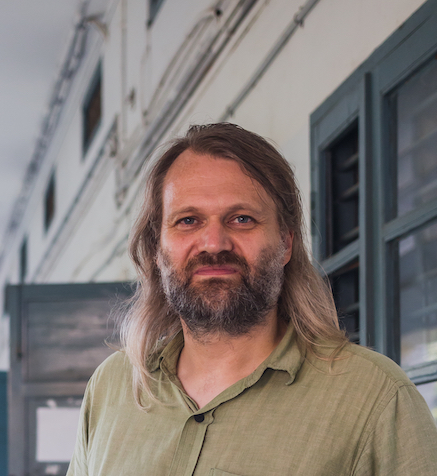c:o/re Senior Fellow 10/22 − 09/23

I have been Associate Professor for the History of Science and Technology at the Indian Institute of Technology (IIT) Madras since 2015. Before joining IIT Madras, I taught at the University of Regensburg, and studied physics and history of science at the Carl von Ossietzky University of Oldenburg and the Norwegian University of Science and Technology in Trondheim. My work has concentrated on the history of the physical sciences and engineering in the 19th and 20th centuries, including electromagnetism, nuclear physics, acoustics, and the history of science and engineering education. I am President of the Scientific Instrument Commission of the DHST/IUHPST and passionately interested in the history of scientific instruments, collections, and scientific and technological practice. In recent years I have explored the Indo-German history of IIT Madras between 1956 and 1974, and I am in charge of setting up its historical archive.
Circulating Technical and Scientific Knowledge, People and Objects After 1945
I am interested in examining and understanding how individuals, communities, government and non-government institutions, and corporations imagined, regulated, and mobilized technical and scientific forms of knowledge together with objects and people across regions in the post-war period, asking explicitly for the epistemic shifts that occurred with these movements. While it is crucial to observe these epistemic shifts in the long dureé, the post-war and post-colonial period established new dynamics of technological and scientific exchange, of which the epistemic dimensions have so far not been adequately studied. I intend to look at complex forms of transnational interactions between different kinds of knowledge regimes, and challenge apparent binaries and dichotomies, such as “west – non-west”, craft – engineering, traditional – modern, and hand – mind.
The Indian Institute of Technology (IIT) Madras was established between 1956 and 1974 with the assistance of the Federal Republic of Germany in the context of an evolving development discourse. Setting up IIT Madras was one of many projects of technological and scientific collaboration in which the Federal Republic of Germany engaged with India in the post-war period. West German assistance to IIT Madras needs to be understood as part of an extensive engagement in technical education by both West and East Germany in India as well as in other countries that came to be seen as the developing world during the Cold War. While these exchanges were imagined as linear exchanges of knowledge and expertise in “knowledge transfer”, they never turned out that way. People, objects, concepts, practices, models and institutions were transformed when they travelled and entangled with existing knowledge and social structures, hierarchies, economies and practices, and gained new meanings. Knowledge regimes became active agents in the shaping and re-shaping of these regions, and in how the regions relate to each other.
Publications (selection)
Wittje, Roland. Relocating Education in the History of Science and Technology. In History of Education (Published Online: 20 Dec 2022). DOI:10.1080/0046760X.2022.2141350 .
Wittje, Roland. 2020. Engineering Education in Cold War Diplomacy: India, Germany, and the Establishment of IIT Madras. In Berichte zur Wissenschaftsgeschichte, 43(4): pp. 560–580. DOI:10.1002/bewi.202000014
Wittje, Roland. 2020. The Establishment of IIT Madras: German Cold War Development Assistance and Engineering Education in India. In Technikgeschichte, 87(4): pp. 335–357. DOI:10.5771/0040-117X-2020-4-335
Wittje, Roland. 2020. Noise: From Nuisance to Research Subject. In Physics Today 73(2): pp. 42–48. DOI:10.1063/PT.3.4409
Wittje, Roland. 2016. The Age of Electroacoustics: Transforming Science and Sound. MIT Press: Cambridge (MA)

